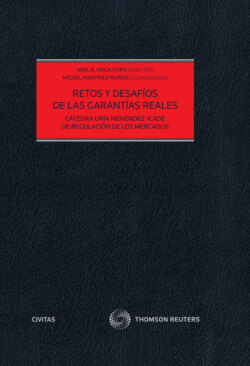Читать книгу Retos y desafíos de las garantías reales - Abel B. Veiga Copo - Страница 18
На сайте Литреса книга снята с продажи.
2. The purchase money security interest
ОглавлениеArticle 9 and its progeny accord a super-priority to so-called purchase-money security interests, which are interests that secure a purchase-money obligation. Putting aside the cases of consignments and finance leases, and taking the Saskatchewan Act as an example, this interest arises in two instances. The first arises “to the extent that [the security interest in collateral] secures all or part of its purchase price87”. Consequently, a reservation of title under a conditional sale is recharacterised as a purchase-money security interest. The purchase-money obligation also arises where “a person…gives value for the purpose of enabling the debtor to acquire rights in the collateral, to the extent that the value is applied to acquire those rights88”. The first instance may be seen, in part at least, as a covert recognition of what I referred to earlier as the sentimental attraction of ownership89, amounting to a statutory acceptance that the distinction between title and security cannot wholly be eliminated in a broad functional scheme of security90.
Apart from the super-priority itself, an oblique recognition of the special character of the purchase money security interest is also present in the rule that a purchase money security interest in consumer goods is perfected on attachment without any need for filing91 and, to a lesser extent, in the rule that allows a grace period of up to twenty days for a filing to be made after the debtor receives possession of the goods92. Both types of purchase money interest are here accommodated, but the superior character of the former type of interest is manifest in the way that priority between them is determined. Where there is a priority conflict between two such interests, an interest in respect of the price prevails over an interest arising from value given to enable the debtor to acquire an interest in or the use of the goods93. Apart from the sentimental attraction of ownership, there are, nevertheless, other reasons for recognising the primacy of a later creditor in some cases. The second instance of value given is different from deferring payment of the price and responds to these other reasons. In both instances, the purchase money creditor is adding value to the debtor’s estate and is not detracting from the value of an earlier creditor’s security.
Returning to a security interest securing an obligation to pay the price of goods, it can certainly be said that English law, while not yielding to the attractions of Article 2, recognises the purchase money security interest in a different way. First, a reserved title creditor will always prevail over a prior chargee since that prior charge is capable of attaching only to the property rights of the conditional buyer which do not arise until the purchase price of the goods has been paid in full. The reference above to a judge’s dictum that the buyer was entitled to any surplus realised by the seller94 makes no mention of the awkward possibility that a purported charge over the goods in favour of another creditor would attach to the buyer’s right to a surplus as, when and if if a surplus ever eventuated. Moreover, the conditional seller’s reserved rights prevent the goods from falling into the hands of a trustee-in-bankruptcy or a company liquidator. Again, English law goes further than Article 9 in exempting the conditional seller from having to fulfil a registration (or filing) requirement. Unlike American states and Canadian provinces, English law has never required conditional sales (or hire purchase contracts) to be registered. As for the second instance of purchase money security interest, there is a tiny handful of English cases recognising this with reasoning that would not withstand sustained criticism95. This amounts to much less than can be found in this second instance under Article 9 and the Saskatchewan Act.
